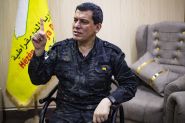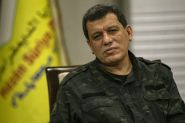- Home
- Middle East
- War in Syria: 13 Years of Conflict
2011: The winds of the Arab Spring reach Syria. Peaceful protests erupt in Deraa, as the people call for reforms and justice. Bashar al-Assad's regime responds swiftly and brutally. The crackdown is bloody, and anger becomes the driving force of the protesters. The demonstrations spread across the country like wildfire. This marks the beginning of a popular uprising, and soon, a civil war.
2012: Rebels seize large swathes of land in the north and east of the country, while pro-Assad forces cling to the major cities in the west and south. The Free Syrian Army emerges as the main armed opposition force. Violence escalates and Syria’s fragmentation intensifies.
2013: Supported by Hezbollah fighters, the forces backing the regime mount large-scale attacks, with little regard for the human toll. Bashar al-Assad orders the use of chemical weapons in Ghouta, killing hundreds of civilians. The international community’s outrage is matched only by its impotence. Despite some attempts, no military intervention is decided. Largely unpunished, the Assad regime is further strengthened.
2014: The Islamic State invades northeastern Syria and establishes its caliphate in Raqqa. The jihadist organization broadcasts images of its brutality, sending shockwaves throughout the world. In response, an international coalition led by the United States attempts to oust the terrorist group. But the reality on the ground is clear: the coalition forces, primarily the Kurds, struggle to contain the expansion of the Islamic State.
2015: Russia joins the conflict. Vladimir Putin provides crucial air support to Bashar al-Assad, and the Kurdish forces, allied with the US-led coalition, manage to push the Islamic State back to the city of Kobani, in northern Syria. This maneuver is pivotal, signaling the gradual weakening of the Islamic State in Syria.
2016: After unsuccessful attempts to establish ceasefires, the Syrian government, aided by Russia, recaptures Aleppo, a symbol of rebel resistance. The devastation of the country’s second-largest city only heightens the tragic and intractable nature of the war.
2017: Peace talks are held in the Kazakh capital, Astana, under the patronage of Russia, Iran and Turkey. The eponymous agreements are made there. Simultaneously, the strikes launched by the coalition and the local forces against the Islamic State prove effective. ISIS loses its strongholds one after the other, including Raqqa. Nonetheless, peace remains a distant dream, and tensions between factions persist.
2018: Pro-Assad forces reclaim Eastern Ghouta and the city of Deraa, the birthplace of the popular uprising. The regime strengthens its grip over most of the country. In the north, Turkey seizes Afrin, adding to the complexity of an already incomprehensible conflict.
2019: The fall of ISIS’ “caliphate,” established five years earlier, reshuffles the cards. Far from over, the civil war goes on, its aspects ever-changing. In the northeast, Western Kurdistan is invaded by the Turkish army, with the support of Free Syrian Army rebels. In Idlib, factions loyal to the Assad regime continue their attacks. In their wake, thousands of displaced civilians find themselves without refuge.
2020: The fighting intensifies in Idlib. The city becomes a battleground of attrition. Trapped civilians suffer incessant bombings as hopes for a ceasefire fade.
2021-2024: After years of continuous warfare, the exhaustion of all parties is palpable and a lull sets in. The challenges of rebuilding the country are not met, and international sanctions strangle the economy. At least five million Syrians are now refugees.
Late November 2024: In just 10 days, Turkey-backed rebels led by Hay’at Tahrir al-Sham capture major Syrian cities, including Aleppo, Hama, Homs and finally, the capital Damascus. Despite support from Russia, Iran and Hezbollah, the Assad regime collapses without putting up significant resistance. Bashar al-Assad is forced to flee on December 8, 2024, after more than 20 years in power. The fighting caused thousands of deaths and displaced hundreds of thousands of civilians. After 13 years of conflict, the semi-secular Assad dynasty is no more.
Read more




Comments